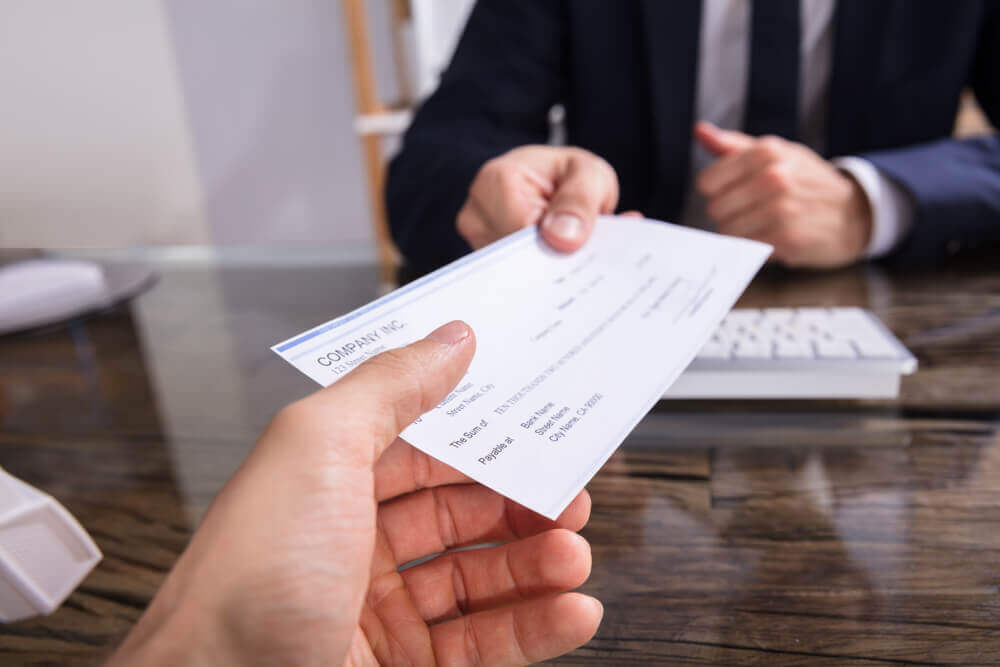Taxes on selling inherited property: Guide for US citizens
Learn how taxes on selling inherited property work as an American – from step-up basis to capital gains, timelines, deductions, and filing tips.

Unfortunately, checks expire after a certain time. You need to know exactly how long your check will be good for if you don’t want it to be rejected by the bank.
So, how long is a check good for? The amount of time a check is good for will depend on various factors, the most important of which is the type of check you’re using.
As a general rule of thumb, you should always try to cash checks you receive as soon as possible to avoid any complications.
If you’re looking for an easier way to send and receive money, then you may want to try Wise. You can make instant money transfers and always keep track of your money with an easy-to-use app.
Join millions of happy customers 🎉
| 📝 Table of contents |
|---|
A check will typically be valid for around six months¹.
There are exceptions to this, but generally speaking, most checks will expire after six months have passed without endorsement.
You can read the full guide on how to endorse a check to find out more about endorsement.
For checks that you have written out to others, you can expect the check to last for six months.
If the recipient does not cash the check or deposit it within six months after your endorsement, they might not be able to.
There’s still a possibility that the bank will process the payment anyway, so consider the money gone unless you hear otherwise.
An uncashed check can be good for a very long time, but it will depend on the type of check and the bank involved.
The legal obligation of a bank is to cash a check that has been sent out within six months; beyond that, there is no reason for the bank to do so.
If you find yourself in this situation, the bank will be able to reach out to the payer and can tell you what needs to be done.
Yes, you can cash a 2-year-old check in theory, but the bank won’t be legally obligated to process it for you.
If you have a 2-year-old check lying around, your best bet is to take up the matter with your bank, the payer, or perhaps even get the state involved.
With each type of check payment, you can expect a different set of rules and expiry dates.
With the personal check, if the check hasn’t been cashed after 180 days or six months, it will be considered invalid.
US Treasury checks² are valid for up to a year after they have been issued, and they are usually related to federal tax returns. They can be tricky to get hold of if you don’t cash them within a year.
With cashier’s checks, it varies according to the banks, so there are no hard and fast rules. While many banks will print a deadline on the checks, others won’t.
Traveler’s checks³ don’t have a defined expiry date, so the only condition for cashing them is that the bank is still around.
You can also choose to have your traveler’s checks exchanged for the local currency, although you may face a bad conversion rate when cashing in.
| 💡 To avoid bad conversion rates and hidden fees, you can try the Wise account next time you travel abroad. |
|---|
You can also find more tips on travel money options in this guide to travel money.
Domestic postal money orders⁴ will never expire or accrue interest.
With that being said, there’s a strong chance that you’ll be hit with a service charge if you don’t cash out the money order with a year or two. This charge will be taken from the original sum of money.
In theory, checks never technically expire, since banks can cash them even after the typical six-month period.
While you will have a tough time cashing a check that has been sitting around for several years, it is still possible. Even after the expiry date determined by state law, banks can choose to cash checks, but it may take some time and effort.
After six months, the bank can also bounce the check which means that they will charge the payer a fee.
You also want to be careful if you do cash an old check. If the payer no longer has funds in the account it was sent from, it can trigger a NSF (non-sufficient funds) fee of $30 or more⁵.
To avoid the hassle of check expiration and waiting for the recipient to cash it, you can use Wise - an easier way to send and receive money.
With Wise, transferring money is quick and easy. You can send, receive and track payments through the Wise app. That means no need for paper records or waiting around for check clearance.
| 🤓 More useful articles you’ll love |
|---|
Sources:
All sources checked 19 April 2021.
*Please see terms of use and product availability for your region or visit Wise fees and pricing for the most up to date pricing and fee information.
This publication is provided for general information purposes and does not constitute legal, tax or other professional advice from Wise Payments Limited or its subsidiaries and its affiliates, and it is not intended as a substitute for obtaining advice from a financial advisor or any other professional.
We make no representations, warranties or guarantees, whether expressed or implied, that the content in the publication is accurate, complete or up to date.

Learn how taxes on selling inherited property work as an American – from step-up basis to capital gains, timelines, deductions, and filing tips.

Understand taxes on selling rental property as an American – capital gains, depreciation recapture, exclusions, timelines, and filing tips to reduce your bill.

What is the 90 day rule on Airbnb? Learn all about rules and restrictions for using your London-based property to make passive income with short-term rentals.

Have a look at our guide that covers how to manage your Airbnb remotely, from automating the check-in process all the way to handling local regulations.

How much do Airbnb property managers charge? Here's an in-depth overview to find out all about the management fees and charges that might arise.

How to report Airbnb income on tax return? This guide will tell you all about reporting your rental income for both domestic and international properties.